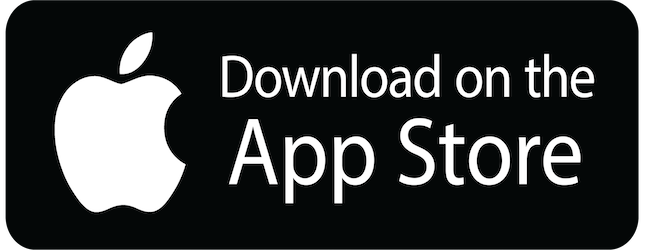The most famous American TV catch phrases (Part 1)
You can learn some interesting English through TV catch phrases.
A "catch phrase" is something that a certain character repeats again and again. As a TV show continues, the audience starts to expect the character to use this phrase and gets excited when they hear it. Catch phrases are most popular on comedies and game shows.
Some catch phrases become so popular that they spread throughout the culture. People use these phrases in situations that remnd them of the TV show. Learning the most famous TV catch phrases can help you to understand some situations that might seem odd if you've never seen the shows they appear in. You can also pick up some new expressions and grammatical structures.
Here are the first 10 catch phrases. Also check out Part 2 and Part 3 (in the Premium section) for more famous catch phrases!
-
“Resistance is futile.”
(The Borg, Star Trek: The Next Generation)
On this science fiction show, The Borg are a very powerful group of half-ailen, half-robots. They travel around space and take over planets. When they take over a planet, they turn all of the people into Borg as well.
The Borg say "Resistance is futile" when they're about to attack and take over a planet or spaceship. This means that it's useless to try to fight against them because they're so powerful.
When to use this:
You hear about a large company buying up a smaller company.
-
"Did I do that?"
(Steve Urkel, Family Matters)
Steve Urkel is a nerdy, clumsy, annoying young man on this situation comedy. He often breaks things accidentally, then asks "Did I do that?" in an innocent voice.
Say this when:
You accidentally knock something over.
-
“Pow, right in the kisser!”
(Ralph Kramden, The Honeymooners)
This situation comedy from the 1950s is about a working class couple. When the husband, Ralph, got mad at his wife, he would threaten that one day he was going to get really angry and punch her:
"One of these days, Alice. POW! Right in the kisser!"
The phrase "Pow, right in the kisser!" meant that he would punch her in her mouth. It doesn't seem very funny thse days, but that was the sense of humor in America in the 1950s.
When to use this:
You and your friends are playfully insulting each other and your friend says a really good insult.
-
“How rude."
(Stephanie Tanner, Full House)
Stephanie was a little girl on this family sitcom from the 1990s. She would say "How rude!" whenever someone was rude to her. It was funny because it sounds like something that an old lady would say.
When to use this:
Your friend criticizes you.
-
“Well isn’t that special?”
(The Church Lady, Saturday Night Live)
"The Church Lady" was a frequent character on the sketch comedy show Saturday Night Live in the late 1980s. This character seemed to be polite and nice on the surface, but she was actually really mean and bitter. Whenever someone said something she did't like, her response was "Well isn't that special?"
When to use this:
Your friend disagrees with you for a dumb reason.
-
“I’m Rick James, bitch!”
(Dave Chappelle as Rick James, Chappelle’s Show)
Chappelle's Show was also a sketch comedy show. In a few episodes, the comedian Dave Chappelle played a real-life famous musician named Rick James. Rick James was known for being really wild. In the sketch, the character of Rick James would do terrible things and then yell out "I'm Rick James, bitch!"
When to use this:
You're drunk at a bar and having a great time.
-
“Excellent...”
(Mr. Burns, The Simpsons)
Mr Burns is an old, rich villain on this cartoon show. He comes up with evil plans, and when things go according to his plans, he says "Excellent..." in a creepy voice.
When to use this:
You're in a meeting at work and you've been told that a project you planned is going well.
-
“Is that your final answer?”
(Regis Philbin, Who Wants to Be a Millionaire?)
Who Wants to Be a Millionaire is a game show that was popular in the early 2000s. Contestants had to answer trivia questions. What made it different from other shows is that it was very dramatic: the room was dark, there was scary music playing, and the host would make contestants doubt themselves by asking "Is that your final answer?" after they answered each question.
When to use this:
You ask a friend a question, and she answers but doesn't seem sure about her answer.
-
“Homey don’t play that.”
(Homey D. Clown, In Living Color)
On this sketch comedy show, "Homey" was a clown from a poor neighborhood. He had a really bad attitude. When children asked Homey to do things that a clown would usually do, like dance or play a game, Homey would hit them and say "I don't think so. Homey don't play that."
When to use this:
Someone asks you to do something that you absolutely don't want to do.
-
“The tribe has spoken.”
(Jeff Probst, Survivor)
Survivor is a reality competition show. On Survivor, 15-20 people are left in the wilderness somewhere and have to live together in groups called "tribes". In each episode, a tribe has to vote to kick one person out. The last person left at the end of the game wins a million dollars.
When a person gets voted out, the host of the show tells that person that "The tribe has spoken." It means that the decision has been made and can't be changed.
When to use this:
You're trying to decide what restaurant to eat at with a group of friends. One friend really wants to go to a certain place, but everyone else agrees to go somewhere else.





